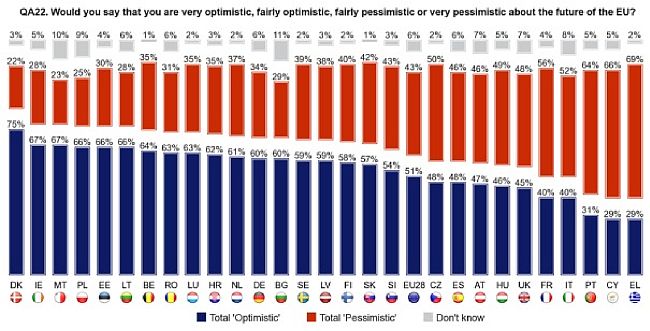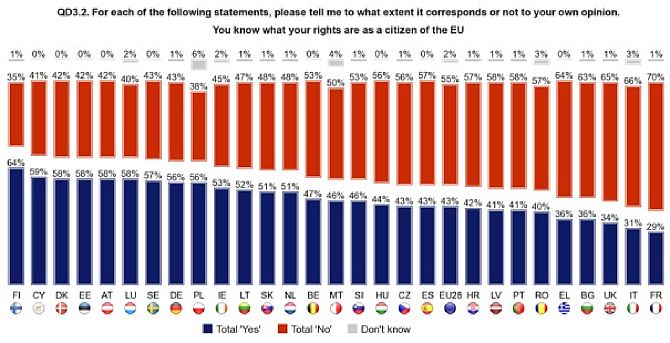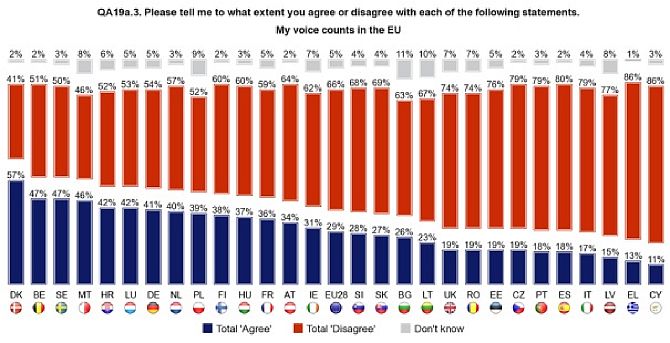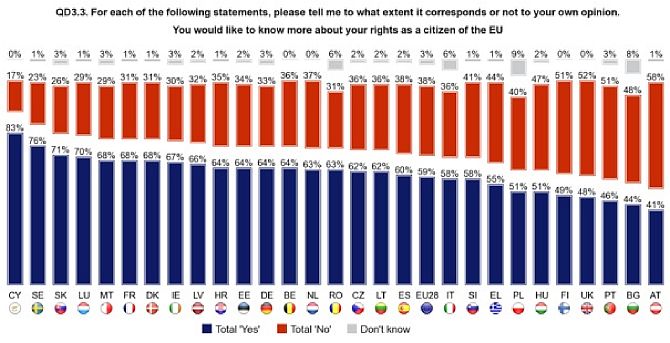Analytics, EU – Baltic States, Legislation, Society
International Internet Magazine. Baltic States news & analytics
Thursday, 17.07.2025, 07:31
Commission takes serious citizens’ dialogue: public opinion counts
 Print version
Print version
In Denmark it was Commissioner C. Hedegaard, responsible for climate change, who took part in the “public dialogue”; in Romania, Dacian Ciolos responsible for agriculture and rural development.
For example, over 400 people participated in Copenhagen (3 delegates are to be nominated from each member states by a random choice), around 250 citizens from all over Romania in Bucharest, etc.
Public opinion counts
Commission is of the opinion that Europe needs to listen more to its citizens. Thus, to make sure that policies designed in Brussels take into account the diversity of all the EU-28 member states with over 500 million citizens, the account of peoples’ wishes is important.
However, each EU citizen has
his/her own dreams and expectations; the “common will” is possible to
calculate.
| Table I. Feeling like a citizen of the European Union |
As soon as the EU officials are going to formulate “the European future”, and want to make sure that the EU citizens opinion is heard in this process, their views are to be taken into account.
Citizens take part in this dialogue in order to discuss what kind of Europe they would like to have and how to build it with common efforts.
The “public dialogue” takes place in all EU member states; the events are web-streamed and citizens from all over Europe can also participate via Twitter using the #EUDeb8 hash-tag.
Preliminary outcome for the Baltic States
A recent Eurobarometer shows that 53% Latvian, 64% Lithuanians and 72% Estonians feel “Europeans” (59% is EU’s average). About 60-66% in the three Baltic States are optimistic about the future of the EU (51% is EU’s average).
However, only about half the Baltic States citizens say that
they know what rights EU citizenship brings and only 15-23% consider that their
voice is being heard in the EU (with 29% of the EU’s average).
 |
| Table II. The future of the European Union |
Baltic States citizens’ attitude towards knowledge of their rights as EU citizens is also quite similar: about 62-66% with about 55% for EU’s average; detailed picture is seen in the tables below.
The citizens dialogues is organized under the "European Year of Citizens" of 2013 (see IP/13/2) and is continuing into 2014. The discussions can be followed in the net via http://ec.europa.eu/debate-future-europe.
 |
| Table III. Knowledge of rights |
Web sites for further information:
= Debates with citizens about the future of Europe: ec.europa.eu/debate-future-europe;
= European Year of Citizens: europa.eu/citizens-2013;
= Europeans have their say: Results of the consultation on EU citizens' rights: ec.europa.eu/justice/citizen/files/eu-citizen-brochure_es.pdf;
 |
| Table IV. My voice counts in the EU |
 |
| Table V. Information about EU citizens' rights |
Reference: European Commission - IP/14/268 “Citizens' Dialogue in Bucharest with Commissioner D. Ciolos”; Brussels, 14 March 2014, In:
http://europa.eu/rapid/press-release_IP-14-268_en.htm?locale=en







 «The Baltic Course» Is Sold and Stays in Business!
«The Baltic Course» Is Sold and Stays in Business!

